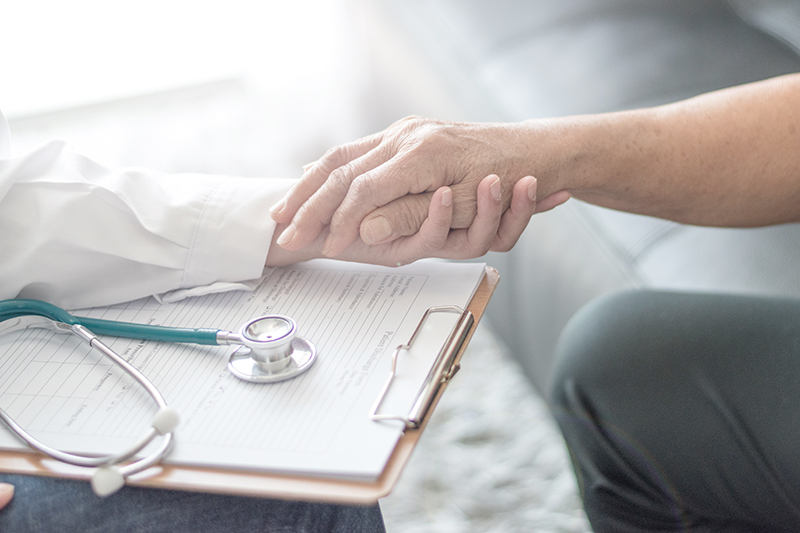Parkinson’s disease is one of movement disorders caused by the degeneration of brain cells that produce dopamine. This leads to dopamine deficiency, the second most common condition after Alzheimer’s disease. It is reported that Parkinson’s disease affects 3 in 1,000 patients around the world. Most are over the age of 60 years old, while 10% of the patients show symptoms in their 30s and 40s. These patients tend to have a family history. In Thailand, there are about 100,000 cases of Parkinson’s disease.
Symptoms
The main symptoms can easily be observed as followed:
- Tremor in hands, arms, legs, jaw, and lips
- Muscle stiffness – arms, legs or body making it difficult to move
- Slowness in movement
- Impaired balance and coordination
- Improper muscle coordination
As all these conditions progress, patients will have difficulty walking, talking or doing daily routine. They tend to worsen, causing further movement problems.
Furthermore, it causes sleep problems such as sleep walking, snoring, together with olfactory problem, constipation, and depression. If you experience such conditions and muscles stiffness, please contact a doctor.
Diagnosing Parkinson’s Disease
Diagnosis requires a thorough history and physical examination to distinguishing Parkinson’s disease from other parkinsonian syndromes that have similar clinical features that may have resulted from taking medication for dizziness or sleeping pills, ischemic stroke disease, hydrocephalus or hypothyroidism, all of which can cause Parkinsonism.
Nowadays, doctor can take a blood test and CT or MRI scans for differential diagnosis, as well as use PET scan to confirm by injecting F-DOPA to check the level of dopamine to determine whether it is Parkinson’s disease or other parkinsonian syndromes. The information can also be used to figure out which stage it is, in order to plan for the treatment.
Treatment for Parkinson’s Disease
The main approach for treatment is medication to control tremor. But long-term medication may develop drug tolerance and control may not be possible. Therefore, it is necessary to perform surgery to introduce a device for Deep Brain Simulation or DBS Therapy, a USFDA-certified technique proven to effectively relieve Parkin’s symptoms. Over 100,000 patients have been treated with this method for over 25 years.

Some Parkinson’s patients may become resistant to medication, causing differential manifestation. These patients may have inconsistent movement control. Some may be more restless or have more tremors because they are losing control of their condition despite being on medication. DBS Therapy requires highly skilled surgeon to place a medical device in the body. The surgeon will implant an electrode into the brain and connect it an electrical pulse similar to a pacemaker for the heart. This device will send lower electrical signal to the part of the brain that controls movement and prevent the brain from sending the wrong movement message. So the patients can perform their daily routines and better control their bodily movements.
DBS Therapy is suitable for Parkinson’s patients who are drug resistance but do not have risks for complications. If they decide to have this surgery, it will help reduce medication and side effects. At the same time, it will increase efficiency of treatment and quality of life for the patients. These electrodes will control excessive brain activity and regulate to its normal level. The stimulation setting is adjusted to suit each individual patient’s condition. Average lifespan for the battery is 5 years, but rechargeable battery can last as long as 9 years.
Rehabilitation
Rehabilitation is another treatment method for Parkinson’s patients who had lost their physical control to tremor, slow movement, imbalance, and autonomic nervous system disorders. These symptoms affect their speech, the ability to swallow as well as cause emotional fluctuations which also affect their families and social circle. Thus, rehabilitation aims to increase patients’ ability to help themselves such as physical therapy to improve the use of their hands for daily routine, practice swallowing and talking as well as caring for overall mental health. Therapy will also help compensate or replace the loss of certain functions, prevent complications, and improve the quality of life. Patients and their family can, thus, cope better with these conditions.